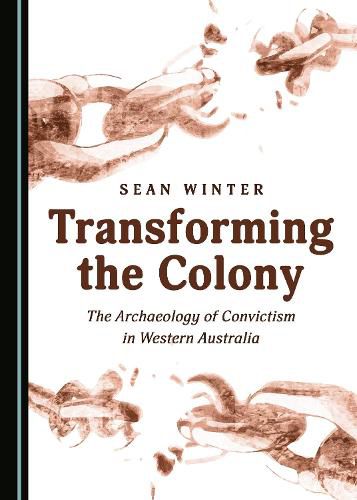Readings Newsletter
Become a Readings Member to make your shopping experience even easier.
Sign in or sign up for free!
You’re not far away from qualifying for FREE standard shipping within Australia
You’ve qualified for FREE standard shipping within Australia
The cart is loading…






Between 1850 and 1868, approximately 10,000 British convicts were transported to Western Australia, in one of the final phases of global penal transportation. The arrival of these men utterly transformed the small Swan River Colony, bringing capital, labour, population influx, and contact with the outside world. Yet their contribution has been downplayed in Western Australian history, outweighed by a sense of shame that the first free Australian colony requested voluntary conversion to penal status in order to survive.This book, based on the author’s PhD research in archaeology, investigates the lives of convicts transported to Western Australia, and in particular, how their presence in the colony served as a form of modernity, fundamentally transforming it in the process. It focuses on the use of the administrative category of the ticket-of-leave to allow convict labour to be used throughout the colony. As such, the text examines the impact of the convict system on regional areas of Western Australia concentrating on the Eastern District communities of Guildford, Toodyay and York, and the convicts who worked there. Using archaeological data from three convict depots, supported by a range of other data sources such as historical documents, genealogical information and oral histories, the nature of convict life in the regions is teased out. In the process, the unique nature of the Western Australian penal colony is demonstrated and the contribution of convicts to the history of the state explored.
$9.00 standard shipping within Australia
FREE standard shipping within Australia for orders over $100.00
Express & International shipping calculated at checkout
Between 1850 and 1868, approximately 10,000 British convicts were transported to Western Australia, in one of the final phases of global penal transportation. The arrival of these men utterly transformed the small Swan River Colony, bringing capital, labour, population influx, and contact with the outside world. Yet their contribution has been downplayed in Western Australian history, outweighed by a sense of shame that the first free Australian colony requested voluntary conversion to penal status in order to survive.This book, based on the author’s PhD research in archaeology, investigates the lives of convicts transported to Western Australia, and in particular, how their presence in the colony served as a form of modernity, fundamentally transforming it in the process. It focuses on the use of the administrative category of the ticket-of-leave to allow convict labour to be used throughout the colony. As such, the text examines the impact of the convict system on regional areas of Western Australia concentrating on the Eastern District communities of Guildford, Toodyay and York, and the convicts who worked there. Using archaeological data from three convict depots, supported by a range of other data sources such as historical documents, genealogical information and oral histories, the nature of convict life in the regions is teased out. In the process, the unique nature of the Western Australian penal colony is demonstrated and the contribution of convicts to the history of the state explored.